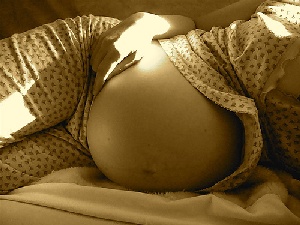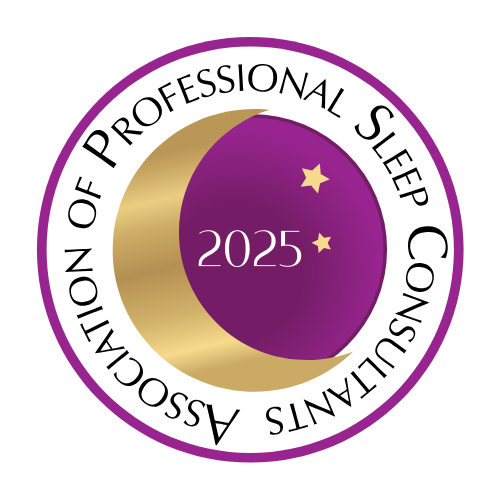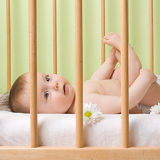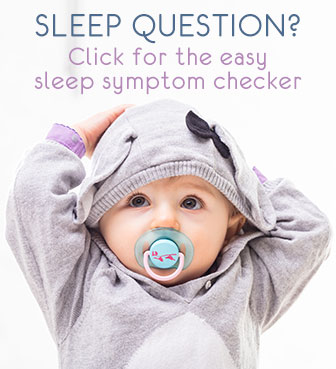Relief from Pregnancy Fatigue
Author Name: Heidi Holvoet, PhD
 photo
courtesy by
dizznbonn
photo
courtesy by
dizznbonn
Fatigue is one of the more unpleasant
early signs of
pregnancy.
Sleeping more helps and enhances
your
wellbeing and baby's development
. It also
keeps
you fit for when baby arrives
.
Easier said than done of course: with hormones racing and
your belly growing, it is not always easy to get the extra sleep you
need.
But with a few simple gestures, you can
relieve the fatigue
and
sleep well
during
pregnancy
.
Pregnancy fatigue and sleeping problems
Pregnancy
fatigue
may come as a bit of a shock for
an active healthy woman: suddenly your body seems unable to
follow
you.
Things you used to do without even thinking about it, can now be too
daunting, just because you're tired.
You may feel tired constantly, be
wasted by dinnertime, or even wake up every morning and not feel rested
at all ... it's inevitable unfortunately but
luckily all normal
for
most of us.
Especially during the first trimester, a lot of your body's energy goes
into the early development of baby and the placenta. You will naturally
want to sleep more.
Later on in pregnancy, your body still needs extra energy although the
pregnancy fatigue may be less - your body adjusts.
But you may have more
practical
sleeping problems
now, like finding a good sleeping position, getting up a
zillion
times to go to the bathroom, worrying about delivery, etc ... (see
below
for tips). All leaving you tired as well.
(Note: Of
course, if you feel extremely tired at any point during pregnancy, and
are in
doubt whether this is still normal, don't hesitate to ask a medical
professional.)
Pregnancy Fatigue Tips
What you can do:
-
Understand the fatigue and sleep when you can
There's no way around it, your body needs more sleep during pregnancy. Difficult as you may find it, it is important to sleep a lot .
In contrast with what many still think, there is no shame at all in taking a nap or going to bed earlier. Forgot about what 'they think', it's about you and your baby now.
Sleeping more may not always be practical, especially with older siblings and/or work or social obligations. But every half hour extra you can get relieves the pregnancy fatigue a bit and both you and your baby will benefit from it . -
Find a good pregnancy sleeping position
As your belly grows, it may become difficult to find a comfortable sleeping position.
Sleeping on your stomach will soon become impossible, and not suited.
Sleeping on your back will soon not be comfortable. Your baby's weight will also put pressure on your spine and the large vein running down it, which is not easy on your heart.
Therefore, sleeping on your side is the best sleeping position throughout pregnancy. If you don't usually sleep on your side, then it's a good idea to start practicing early on in pregnancy.
Ideally you will be curling up a bit: on your side, your knees bent, your top knee over and in front of the other knee.
A maternity pillow (also called pregnancy pillow) or also a breastfeeding pillow, can help you find, and keep, a comfy position.
Many doctors advise to sleep on your left side - to spare the liver located on the right - check with your doctor or midwife when you can. -
Dealing with leg and toe cramps
Many women have frequent leg or toe cramps when pregnant. More often than not, these occur in the middle of the night - and can be very painful.
To relieve a lower leg or toe cramp your toes need to be pushed upwards to stretch your calve .
Ideally another person will do this for you. If you are alone, press your toes against the bedside or wall to get the stretch. Throughout, relax by breathing deeply and slowly, then gently release the stretch.
There is a very simple natural remedy for such muscle cramps: eat a banana . It is a healthy source of magnesium, which helps prevent cramps ot if unavoidable, make them less painful.
If you have very frequent and very painful cramps, do consult your doctor who may advise further. -
Preventing all too frequent bathroom stops
Another very common pregnancy 'feature': frequent bathroom stops . Thanks to hormones your body produces more liquid. And with your uterus growing, there is also less space for your bladder.
All leading to more 'need to go', unfortunately also during the night , waking you up frequently. Some tips:
- You can reduce this a bit by the obvious drinking less late at night and avoiding (heavy) meals or snacks late. Don't exaggerate though: your body still needs to be hydrated well.
- Water is the best choice in the evening. Definitely avoid tea and coffee: not only can they keep you awake, but they are also so-called diuretics meaning that they make your body produce more urine than it would from the same amount of water.
-
If you can arrange it practically,
the half-hour trick
can help you avoid a few nightly bathroom runs. Pee about half an hour
or an hour before you go to bed.
Then during that half hour/hour, rest in the sofa, preferably with your legs stretched out. Then go the bathroom right before bed. During the rest, your body will have the chance to drain some liquid that gathered in your limbs - a big reason for the first few night wakings.
-
Remember optimal sleep hygiene
For the best chance for good sleep, follow the super basic but truly effective sleep hygiene guidelines:
- make your bedroom an attractive cosy place to relax
- not too hot not too cold
- go to bed and get up at regular times
- prepare your body for bed with a relaxed bedtime routine
Avoid the following food and drinks in the afternoon and evening, as they will keep you awake:
- Coffee and tea (remember that even most white and green teas contain caffeine). It takes about 6 hours for your body to clear the caffeine
- Chocolate (contains caffeine too)
- Sugary snacks and drinks
- Smoking (which you want to avoid anyway, see smoking and SIDS )
Water, a glass of warm milk or herbal tea before bed are OK, unless they make you pee too much at night (check above). -
Relax
With a precious baby growing in your belly, expectation and maybe worries about the upcoming delivery and newborn baby: it could take less to keep a mom-to-be lie awake at night.
There are a few simple relaxation techniques you can use to help you relax and fall asleep more easily.
Also, never hesitate to talk about you worries with your partner, family or friends. Consider a local pregnancy information group or ask your doctor for extra information about delivery and baby.
Knowing more will make you feel more prepared and help you relax better.
Pregnancy fatigue
can make the first weeks or months of your pregnancy quite tough. It
can even make you wonder how you will ever make it to the end.
But hang in there! Allow (!) yourself to rest and sleep as much as you can and things will get better. If you remain extremely tired and/or sleep deprived, or if otherwise have any concern about your sleep at all, ask you doctor or health care advisor.
Article Author: Heidi Holvoet, PhD - Founder, senior sleep consultant

Heidi Holvoet, PhD, is the founder of the Baby Sleep Advice website and movement, an award-winning author, baby & toddler sleep consultant with 15+ years experience as well as a certified lactation counselor.
Over the years, Heidi has received several awards inluding a Mom's Choice Award (MCA) and National Parenting Awards (NAPPA) for her Baby Sleep Advice website, programs and books. Also, Baby Sleep Advice was awarded "Most Trusted Infant's Sleep Solutions Company 2023" in the Benelux Enterprise Awards 2023.
Heidi continually conducts personal research and participates in continued education and in that way stays up to date with current scientific and pyschosocial infant care.

She is also a member of the Association of Professional Sleep Consultants of which she was one of the earliest contributors. She obtained her PhD degree in physics at the University of Ghent in Belgium.
Heidi is passionate about helping babies and their parents sleep more and better, with her trademark approach that has been proven and praised time and again by parents worldwide to be effective and truly no-tears. Respect for you as a parent and your baby, is at the heart of Heidi's warm and kind support. Her approach always keeps in mind a baby's needs and abilities at any given age, is based on pediatric science and the most up to date knowledge in infant care and sleep science.
As well as the award-winning baby sleep programs, Heidi offers popular 1:1 consults and easy-access 30-minute SOS Sleep sessions.

Baby waking every hour?
by Heidi Holvoet, PhD

Sleep schedules by age
by Heidi Holvoet, PhD

Separation Anxiety
by Heidi Holvoet, PhD

Crib safety guidelines
by Heidi Holvoet, PhD

Why does my baby wake up every hour?
by Heidi Holvoet, PhD


